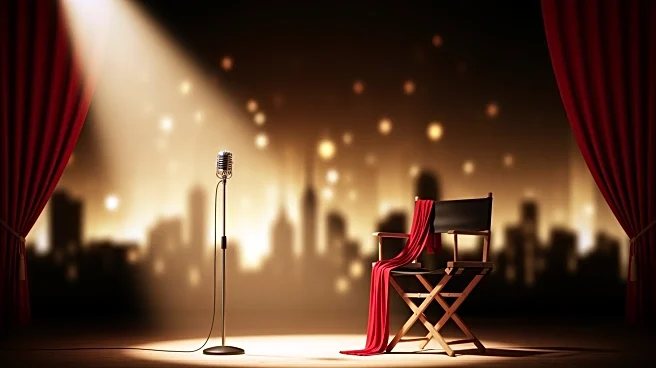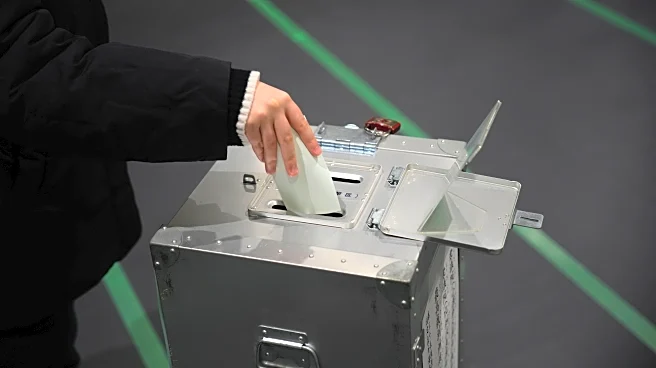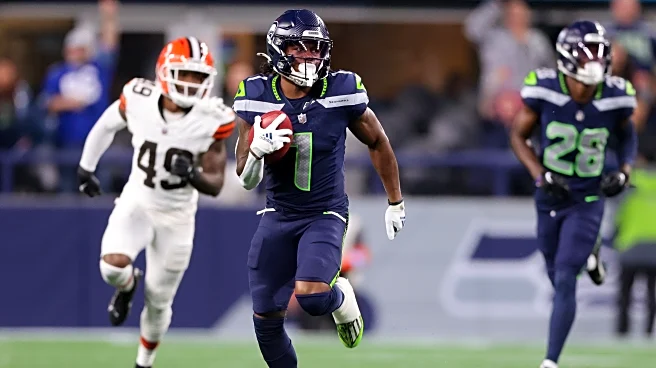What's Happening?
A series of productions in Hollywood and Broadway are spotlighting the roles of women and the fight for gender equality. The musical 'Suffs,' which focuses on the women's suffrage movement, is touring nationally as the Trump administration questions the 19th Amendment. Jennifer Lawrence announced a film project featuring Miss Piggy as a feminist icon, with a script by Cole Escola, a Tony winner. Broadway's 'John Proctor Is the Villain' reflects on young women's experiences in Trump's America, featuring Sadie Sink from 'Stranger Things.' The film adaptation of 'Wicked' is breaking box office records, and the play 'Liberation' explores 1970s women's consciousness-raising groups, inspired by Ms. magazine. These productions are praised for their
portrayal of women challenging the status quo and striving for equality.
Why It's Important?
These cultural productions are significant as they provide a platform for discussing gender equality and women's rights, especially in the context of political challenges such as policy rollbacks from the Trump administration. They serve as a reminder of the ongoing struggle for women's rights and the importance of maintaining momentum in the fight for equality. By highlighting feminist themes, these productions contribute to public discourse and encourage audiences to reflect on societal norms and the role of women in shaping the future. The success of these productions indicates a demand for stories that challenge traditional narratives and promote progressive values.
What's Next?
The continued success of feminist-themed productions may inspire more creators to explore similar topics, potentially leading to a broader cultural shift towards gender equality. As these stories gain popularity, they could influence public opinion and policy discussions, encouraging more inclusive and equitable practices in various sectors. The entertainment industry may see increased collaboration between Hollywood and Broadway, further bridging the gap between the two and amplifying feminist voices. Additionally, these productions could spark conversations about the role of media in shaping societal values and the importance of representation in storytelling.
Beyond the Headlines
The focus on feminism in these productions highlights the cultural divide between progressive and regressive ideologies. As traditional gender roles are challenged, there may be resistance from conservative groups, leading to debates about the portrayal of women in media. The success of these productions could also influence other industries to adopt more inclusive practices, promoting diversity and equality beyond the entertainment sector. Furthermore, the emphasis on women's stories may inspire younger generations to engage in activism and advocate for social change, fostering a more equitable society.















